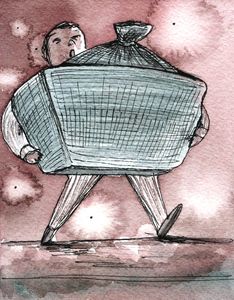By the time the Indian festival season starts with Onam in Kerala on August 25, Piyush Goyal expects to hand over the temporary charge of the finance portfolio back to Arun Jaitley, who is recovering from a kidney transplant. Even as Goyal returns to his full-time charge as railways and coal minister, the chartered accountant-turned-politician is hoping that the decisions he took during the three months at North Block would bring festive cheer.
Goyal’s big achievement is the reduction in the GST rates for white goods like refrigerators, washing machines and television sets, which form a substantial part of the goods sold during the five months after the retreat of the southwest monsoon. The north Indian festival of Dhanteras also induces a shopping spree for automobiles and other metallic goods. The demand for these goods has been impacted by demonetisation, the insistence on PAN for the purchase of jewellery as well as luxury goods and the high GST rates, making the shopping seasons of the last three years rather tepid. Goyal wants the consumers to return in large numbers to the markets and showrooms.
Another governmental incentive for spending has been the increase in the minimum support price for rice and wheat, taken by the economic affairs committee of the cabinet, of which the finance minister is a key member. Goyal has been urging manufacturers of white goods to pass on the price cuts to consumers, while the surplus funds generated by farmers would also help in rural sales. The finance ministry is also telling banks that they should be liberal in giving personal loans for the purchase of motor vehicles and white goods.
There is serious thinking in the banking sector regarding teaser loans, implemented by O.P. Bhat, chairman of the State Bank of India from 2009 to 2011. To fight the blues of the global meltdown, Bhat had introduced home and vehicle loans at concessional interest rates, which had resulted in a surge of creditors. But, Bhat’s aggressive marketing had drawn critics from within and outside the government, forcing his successor to drop the teaser loans. There had been fear that truancy was high for these loans, given liberally by the banks.
But, since the offtake has been tepid due to the lack of demand and stringent checks because of the mounting pile of non-performing assets, there are suggestions for a new aggression by banks.
The government wants the consumption levels to be high as it leads to a feel-good factor, and also encourages manufacturing activities which have not grown in the last three years, leading to either a freeze or reduction in jobs. The sluggishness of the export market has also added to the woes, especially among car manufacturers, who had healthy export numbers till 2015. Reports of the World Gold Council noted that the demand for jewellery had come down in India and China in the last two years.
Goyal is also part of the group of ministers who advises the prime minister on the contents of his final speech of this term from the ramparts of the Red Fort on Independence Day. There is a strong feeling that Narendra Modi should announce populist schemes, which would put ready money in the pockets of people, like the rural employment guarantee scheme of Manmohan Singh and Sonia Gandhi announced a decade ago. Consumer confidence can lead to increasing popular support in the coming general elections. Welfare and subsidy schemes have better traction than the insurance-focused approach for the advantage of the Modi government.
sachi@theweek.in


